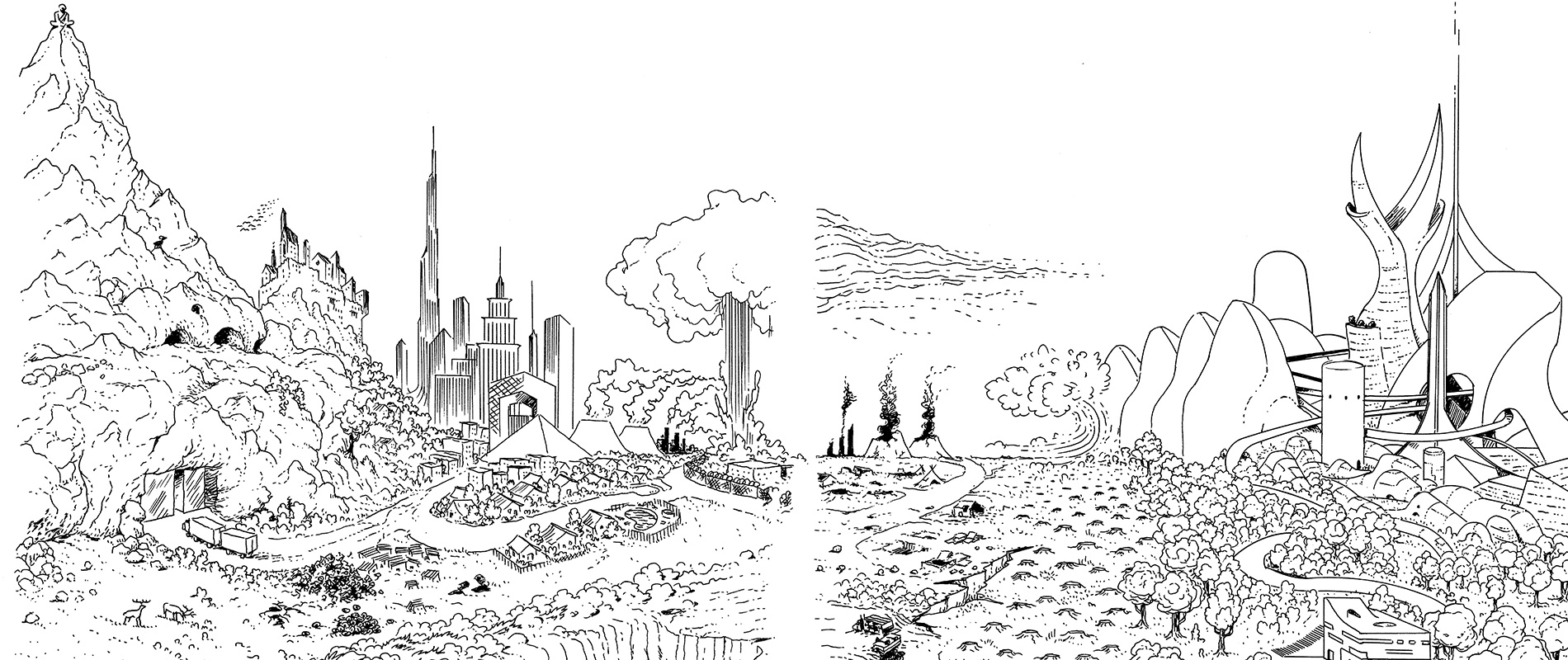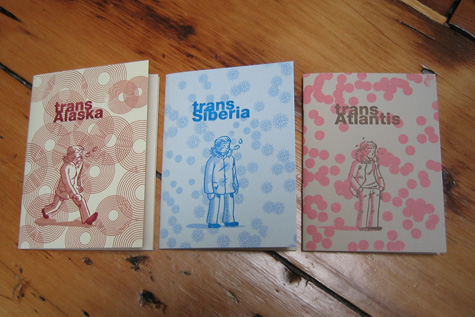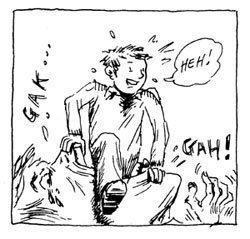
My blogging frequency was never great, but it has slowed to a glacial crawl in recent months. One of the reasons for the slow-down is MOME, the quarterly comics anthology published by Fantagraphics. I’ve been asked to become a regular contributor so now I spend most of my free time working (or thinking about working) on comics for the publication. The quarterly deadline has been a difficult adjustment. Time for all sorts of other activities (like this blog) has pretty much evaporated. I’ve heard some say that I’ve been MOMEd… But I’m not writing this to complain. I’m honored to be included in such good company!
The MOME 7 (Spring 2007) story is actually a reprint of a story that first saw the light of day in The Backwards City Review #4 a few months back. This was done to give me a little bit extra time to develop new stories for the subsequent issues. All future MOME stories are going to be new, and created specifically for MOME. One thing MOME has allowed me to do is use color. I ended up converting the graytones (roll over the image above to see comparison) to a second color.
Anyway, the book should be in stores now. You can also pre-order it on Amazon, or get it now from the source itself: Fantagraphics.




















